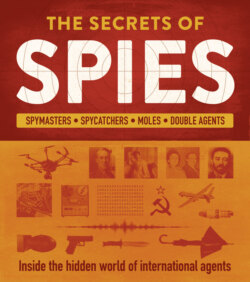Читать книгу The Secrets of Spies - Weldon Owen - Страница 59
На сайте Литреса книга снята с продажи.
ОглавлениеTHE ROAD TO WAR
The most fateful assassination in history took place in the
small Balkan city of Sarajevo on June 28, 1914. Archduke Franz
Ferdinand—the heir to the Austro-Hungarian throne—and his wife
were shot and killed by a Serb nationalist, setting in motion a chain
of events that would lead to the outbreak of World War I.
In 1914, Europe was divided into two armed camps: France and Russia
ranged against Germany and Austria-Hungary. Britain, the other major
European power, remained outside the formal alliance system but
maintained friendly relations with France.
Each state was keen to discover the military strengths and strategies
and diplomatic intentions of its opponents (and allies), but at this time good
intelligence was patchy and what existed was not always acted upon in the
best manner. France and, especially, Russia had the superior intelligence
services, gaining results from their black chamber decrypting departments.
The diplomatic crisis that engulfed Europe in July 1914 was a direct
consequence of the events in Sarajevo. The new state of Serbia had been
created from the collapse of the Turkish empire in the Balkans, although
substantial numbers of Serbs lived in territories that remained under
Austrian control, including Bosnia-Herzegovina. Serb nationalists were determined to incorporate these areas into
Serbia, even though they contained many other ethnic groups as well as the Slavic Serbs.
CHAPTER 3 NINETEENTHCENTURY INTELLIGENCE
60
Above: Franz Ferdinand and his wife Sophie
TREACHERY IN HIGH PLACES
From a humble background, Alfred Redl used his ability
and ambition to rise through the Austro-Hungarian army. In
1900, he was assigned to the Russian section of the army’s
intelligence bureau, and seven years later he became chief of
its counterintelligence branch with the rank of colonel. Redl
was a homosexual with a taste for the good life
well beyond his modest salary, and in 1901,
he was blackmailed by Russian intelligence
to work for them as a spy. From then on,
Redl provided the Russians with a massive
array of intelligence, which included
Austria’s plans for invading Serbia and
details of Austrian mobilization plans
against Russia. In 1913, Redl’s treachery
was discovered. Admitting his guilt,
he was left alone with a loaded revolver.
He duly shot himself.
Right: Alfred Redl
